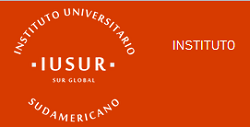Technological Competence of Students and Teachers of the Master's Degree Program
DOI:
https://doi.org/10.25087/resur16a1Keywords:
Technological Competence, Moodle Platform, Higher Education, TICAbstract
The social distancing imposed in different countries as a consequence of the COVID-19 pandemic has led higher education institutions to continue with academic activities using information and communication technologies (ICT), through of the different educational platforms, as was given in the master's degree of the National Institute of Higher Education «Dr. Raúl Peña» (INAES) from Paraguay, in the year 2022, the post-pandemic, with the Moodle platform. The main objective of this study was to determine the degree of technological competence of the students and teachers of the INAES master's degrees, cohorts 2020-2022 and 2021-2023, for the use of the Moodle educational platform. The data was collected in 2022, through surveys, through questionnaires. The research was developed under a quantitative approach, descriptive scope and non-experimental, cross-sectional design. The research findings reveal that, in general, teachers have better technological skills than students. The dimensions from which the research was approached were office tools, web environment and digital resources on the web. Through which it was possible to observe greater weakness in students and teachers in relation to the management of office tools.
Downloads
References
Bailón, W., Arauz, G. y Macias, D. (2021). Utilización de herramientas ofimáticas por parte de docentes y estudiantes universitarios ecuatorianos. Dominio de las Ciencias, 7(3), 471-492. https://dialnet.unirioja.es/servlet/articulo?codigo=8229646
Cabero, J. (2020). Aprendiendo del tiempo de la COVID-19. Revista Electrónica Educare , 24 (Suplemento 1), 4-6. https://dx.doi.org/10.15359/ree.24-s.2
Dans, E. (2009). Educación online: plataformas educativas y el dilema de la apertura. En: Cultura digital y prácticas creativas en educación. Revista de Universidad y Sociedad del Conocimiento (RUSC). 6 (1). UOC. https://dialnet.unirioja.es/servlet/articulo?codigo=2938410
De Pablos, J., Colás, M. y González, T. (2011). La enseñanza universitaria apoyada en plataformas virtuales: cambios en las prácticas docentes: el caso de la Universidad de Sevilla. Estudios sobre educación, 20, 23-48. https://redined.educacion.gob.es/xmlui/handle/11162/44464
Díaz, S. (2009). Plataformas educativas, un entorno para profesores y alumnos. Revista digital para profesores de la enseñanza. Temas para la educación, 2. https://feandalucia.ccoo.es/andalucia/docu/p5sd4921.pdf
García Aretio, L (2021). COVID-19 y educación a distancia digital: preconfinamiento, confinamiento y posconfinamiento. RIED. Revista Iberoamericana de Educación a Distancia, 24 (1), 9-32. https://www.redalyc.org/journal/3314/331464460001/331464460001.pdf
López, M., Echeverry, C. y Heredia, D. (2009). La educación virtual, análisis y gestión en las universidades de Manizales. Revista Virtual Universidad Católica del Norte, (28), 1-23. https://www.redalyc.org/pdf/1942/194214468005.pdf
Manrique Maldonado, K., Arcos Mastache, G., Cabrera Ríos, S. y Bonilla Gómez, M. (2021). La pandemia y su impacto en la educación superior. El uso de la tecnología por los estudiantes de la Facultad de Comunicación y Mercadotecnia de la UAGro. Cuaderno de Pedagogía Universitaria, 18(35), pp. 06-17. https://cuaderno.wh201.pucmm.edu.do/index.php/cuadernodepedagogia/article/view/408/436
Mirabal, A., Gómez, M. y González, L. (2015). Uso de la plataforma MOODLE como apoyo a la docencia presencial universitaria. Edmetic, 4(1), 133-155. https://dialnet.unirioja.es/servlet/articulo?codigo=5192047
Prendes, M. y Gutiérrez, I. (2013). Competencias tecnológicas del profesorado en las universidades españolas. Revista de educación, 361, 196-222. https://redined.educacion.gob.es/xmlui/bitstream/handle/11162/97507/re36108.pdf?sequence=1&isAllowed=y
Ríos, A., Álvarez, M. y Torres, F. (2018). Competencias digitales: una mirada desde sus criterios valorativos en torno a los estilos de aprendizaje. Revista Latinoamericana de Estudios Educativos, 4 (2), 56-78. https://revistasojs.ucaldas.edu.co/index.php/latinoamericana/article/view/3976/3684
Roig-Vila, R., Rojas-Viteri, J. y Lascano-Herrera, N.A. (2022). Análisis del uso de Moodle desde la perspectiva del modelo TAM en tiempos de pandemia. RiiTE Revista Interuniversitaria de Investigación en Tecnología Educativa, 12, 95-112. https://doi.org/10.6018/riite.519341
Romero, L., Urbina, V. y Gutiérrez, J. (2010). Estilos de aprendizaje basados en el modelo de Kolb en la educación virtual. Apertura, 2(1). 1-21. https://www.redalyc.org/pdf/688/68820841007.pdf
Ros, I. (2008). MOODLE, la plataforma para la enseñanza y organización escolar. Ikastorratza, e- Revista de Didáctica 2. 1-12. Recuperado de http://www.ehu.es/ikastorratza/2_alea/MOODLE.pdf (issn: 1988-5911).
Sánchez, J. (2009). Plataformas de enseñanza virtual para entornos educativos. Pixel-Bit. Revista de Medios y Educación, (34), 217-233. Recuperado de: http://www.redalyc.org/pdf/368/36812036015.pdf
Sandí, J. y Sanz, C. (2018). Revisión y análisis sobre competencias tecnológicas esperadas en el profesorado en Iberoamérica. Edutec. Revista Electrónica De Tecnología Educativa, (66). pp. 93-121. https://doi.org/10.21556/edutec.2018.66.1225
Vargas, L., Gómez, M. y Gómez, R. (2013). Desarrollo de habilidades cognitivas y tecnológicas con aprendizaje móvil. Revista de Investigación Educativa del Tecnológico de Monterrey, 3(6), 30-39. http://rieege.mx/index.php/rieege/article/download/76/40
Published
How to Cite
Issue
Section
License
Copyright (c) 2024 Nimrod Rubén Aguilar Benítez, Claudia Elena López Rolón, Agustina Subeldía Coronel

This work is licensed under a Creative Commons Attribution-ShareAlike 4.0 International License.









